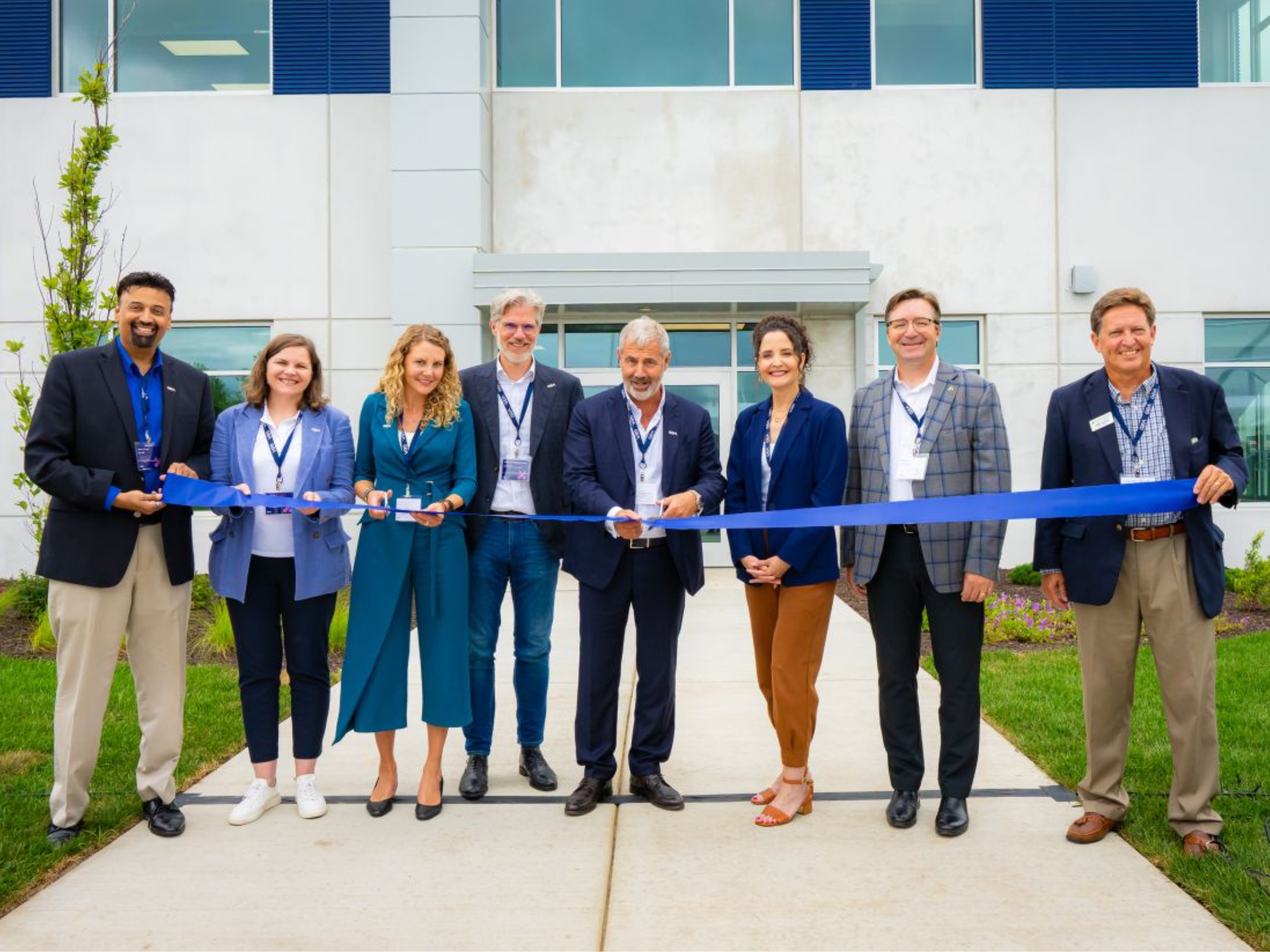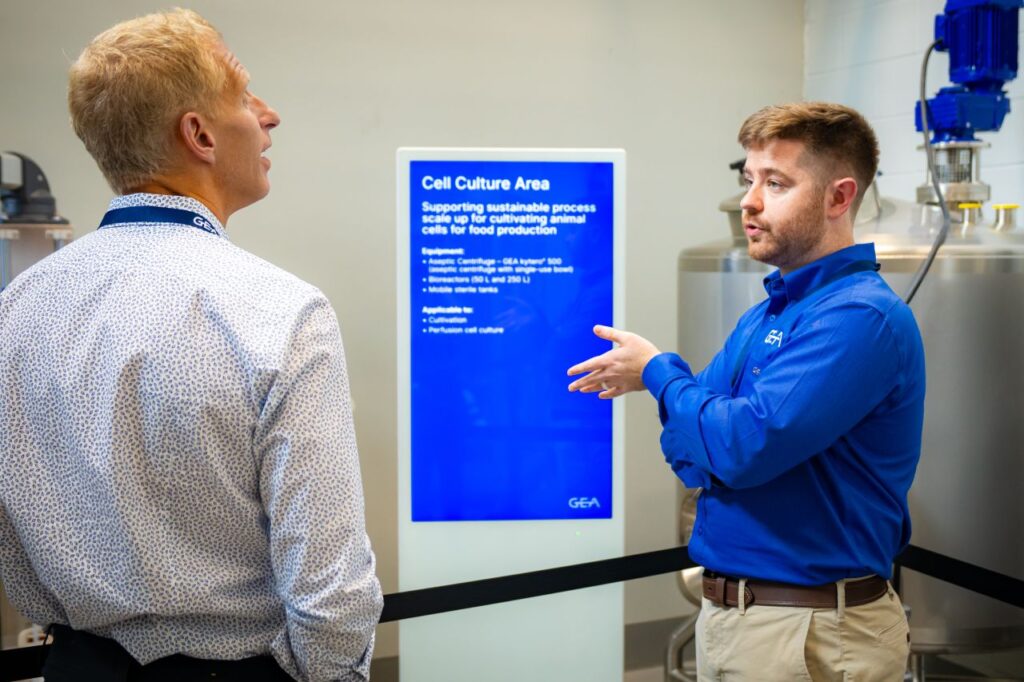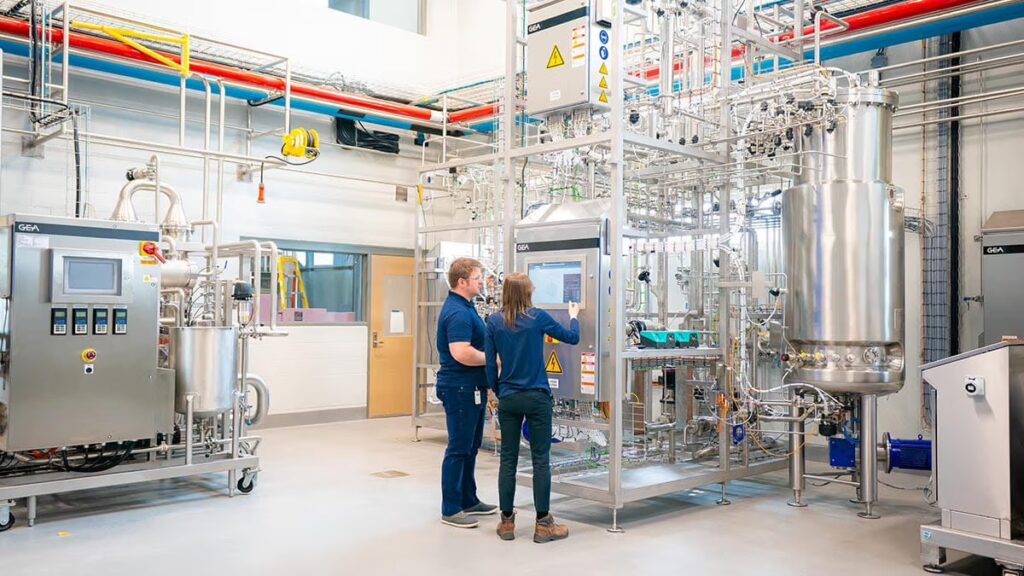
German engineering firm GEA has opened its New Food Application and Technology Center in the US with a $20M investment to scale up alternative protein production.
To boost alternative proteins like animal-free dairy and cultivated meat, GEA has unveiled a new future food innovation hub in Janesville, Wisconsin.
The New Food Application and Technology Center (ATC) is supported by a $20M investment by the company, which supplies production-scale equipment to the food and beverage industry, and its second such Center of Excellence. It is a sister facility to the ATC in Hildesheim, Germany, which became operational in 2023.
Powered entirely by renewable energy, the US hub features pilot-scale infrastructure for precision fermentation, cell cultivation, and plant-based processing. The move aims to bridge the gap between lab innovation and industrial-scale production, with a focus on sustainability and the region’s economic transformation.
“With this investment, we are helping our customers scale up the production of novel foods such as precision-fermented egg white and cultivated seafood,” said GEA Group CEO Stefan Klebart.
The centre “shows how innovation and agriculture can work hand in hand to create good jobs, strengthen food security, and help address climate challenges”, according to Jessica Almy, interim CEO of think tank the Good Food Institute.
New GEA hub focuses on key process technologies

The new facility expands the GEA Janesville campus, which has served as a production, repair, logistics, and training site since 2024. According to the company, it combines core process technologies essential for producing next-gen proteins at scale.
The ATC has pilot-scale bioreactors for precision fermentation and cell cultivation, which simulate industrial conditions and allow companies to validate and optimise their processes early. Further, it offers a range of options to test UHT configurations, including thermal processing and aseptic filling.
Direct and indirect heat treatment options allow liquids of varying viscosities and sensitive components to be heat-treated on site, and packaged with an aseptic bag filler to retain the product for further quality checks. These tools can support shelf-stable storage for the alternative beverage industry, providing flexibility in distribution chains and cutting food waste.
Meanwhile, membrane filtration, spray drying, and centrifugation support downstream separation and formulation, helping enhance the quality, texture and cost efficiency of products. And advanced lab capabilities enable microbiological, cell-based, and analytical testing under one roof.
The construction of the centre supported up to 500 contractor and subcontractor jobs, and its opening has added up to eight jobs to GEA’s 74-strong workforce in the city. “This facility reflects how Janesville’s rich agricultural and industrial heritage can intersect with cutting-edge innovation,” said Jimsi Kuborn, Janesville’s economic development director.
“It not only honours our community’s roots, but also creates new opportunities for partnerships, workforce development, and sustainable growth. This project is a model for what’s possible – not just for Janesville, but for the entire Midwest and beyond,” she added.
Further investment crucial to meet cellular agriculture’s capacity needs

GEA said the new centre will look to foster collaboration between startups, the food industry, academia, and investors. It allows cell-based and microbial food players to generate true proofs of concept for their processes and support scale-up models to commercial manufacturing without any capital expenditure or other investment costs.
One of the first collaborators of the Hildesheim ATC was Israel’s Imagindairy, which makes cow-free whey proteins using precision fermentation. GEA is separately working with fellow Israeli firm Believer Meats, helping it develop technologies to lower the costs and emissions associated with producing cultivated meat.
“GEA technology hubs are the crucible where visionary science becomes transformative industry, uniting biological innovation with cutting-edge engineering to move towards a more sustainable future,” said Believer Meats CEO Yaakov Nahmias, who is also the director of the Grass Center for Bioengineering at the Hebrew University of Jerusalem.
The US centre, first announced last year, complements GEA’s other food tech hubs in Skanderborg, Denmark (for bioreactors), Oelde, Germany (for cell separation), and Bakel, Netherlands (for plant-based foods).
“The food industry is at a crossroads. To feed future generations sustainably, we must turn vision into a scalable reality,” said Klebert. “Our new centre in Janesville is a key milestone on our shared journey, both for our customers and for us as a company.”
Cost and scale are the two major obstacles faced by the cellular agriculture sector. According to McKinsey, cultivated meat firms would need up to 22 times more fermentation capacity than currently exists in the global pharmaceutical sector. In a recent report, it noted that the sector needed $250B to meet its capacity needs.
GEA isn’t the only systems supplier helping cultivated meat companies scale up. Swiss manufacturer Bühler is working with Israel’s Ever After Foods to produce these proteins at a mass scale with much smaller equipment.
And its ATC is among a number of food tech hubs that have opened in the US recently. Last year, the University of California, Davis led the launch of the Integrative Center for Alternative Meat and Protein to speed up the commercialisation of alternative proteins, and Bezos Earth Fund opened the first of its three Centers for Sustainable Protein at North Carolina State University.
The post GEA Opens $20M Centre to Scale Up Alternative Proteins in the US appeared first on Green Queen.
This post was originally published on Green Queen.